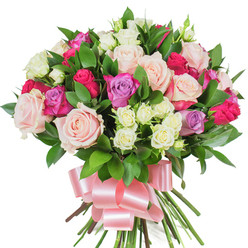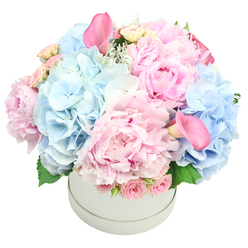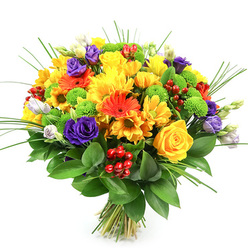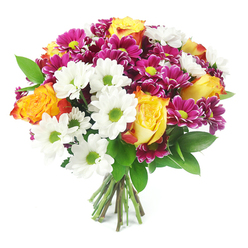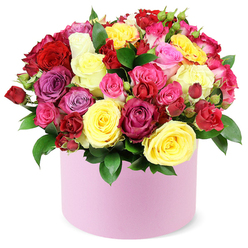Funeral Flowers Colney Hatch N11

Funeral Flowers: A Comprehensive Guide
Flowers have held a profound significance in human life and culture for centuries. They are part of our happiest moments, and they also offer solace during times of sorrow. One of the most enduring and poignant occasions for their use is funerals. Funeral flowers are a way to express sympathy, convey respect, and honor the life of the deceased. This article aims to delve deep into the subject of funeral flowers, covering everything from types, meanings, and traditions, to how to choose the right arrangement.
The Historical Significance of Funeral Flowers
Funeral flowers are not just a modern-day convention. Their use can be traced back to ancient civilizations. The Egyptians, Greeks, and Romans used flowers to honor their dead, often placing them in tombs and graves. Over time, this practice evolved, and different cultures have imbued various meanings into different types of flowers.
In Victorian England, specific flowers were chosen to represent certain sentiments. For example, lilies were used to symbolize purity, and roses denoted love. These traditions have influenced how we use funeral flowers today.
Types of Funeral Flowers and Their Meanings
Understanding the meanings behind different types of funeral flowers can help you make a thoughtful choice:
- Lilies: Often associated with the restored innocence of the soul of the deceased, lilies are a common choice for funeral arrangements.
- Roses: Each color holds a different meaning. Red roses reflect love and grief, white roses signify reverence and innocence, and pink roses symbolize gratitude and grace.
- Carnations: Red carnations signify admiration, while white carnations represent pure love and innocence.
- Chrysanthemums: In several cultures, including in Europe and Asia, chrysanthemums are used exclusively for funeral flowers and signify death and mourning.
- Orchids: Orchids, particularly white and pink, stand for eternal love.
The Different Types of Funeral Flower Arrangements
Funeral flower arrangements come in various forms, each suited for different purposes:
Wreaths
Wreaths are circular arrangements symbolizing eternal life. They are often placed on stands around the casket or grave. Wreaths are versatile and can be made from a variety of flowers, including roses, lilies, and chrysanthemums.
Sprays
Sprays are floral arrangements that can be horizontal or vertical. They are typically placed on top of the casket or on an easel near the casket. Single-ended sprays are usually placed closer to the coffin, while double-ended sprays are more elaborate.
Bouquets
Bouquets are simpler arrangements that can be placed anywhere in the church or funeral home. Unlike sprays and wreaths, they are often given by friends and acquaintances rather than immediate family members.
Crosses
Cross-shaped arrangements are a traditional symbol of Christianity. These floral arrangements are a powerful tribute to a person's faith and can incorporate various flowers like roses, lilies, and carnations.
How to Choose the Right Funeral Flowers
Selecting the right funeral flowers can be emotionally taxing, but it's a meaningful way to honor someone's memory. Here are some tips to guide you:
- Understand Cultural Sensitivities: Different cultures and religions have varying practices regarding funeral flowers. For instance, in Hindu funerals, garlands made of chrysanthemums or marigolds are common, while in Jewish traditions, flowers are not typically used.
- Consider the Relationship: Close family members usually choose larger, more elaborate arrangements like sprays and crosses. Friends and acquaintances might opt for smaller bouquets or plants.
- Think About the Deceased: If the deceased had a favorite flower or color, incorporating that into the arrangement can make it more personal.
- Consult the Family: Sometimes families have specific requests or themes for the funeral. It's good practice to ask before making your selection.
Proper Etiquette for Sending Funeral Flowers
Observing proper etiquette when sending funeral flowers ensures that your gesture is received in the respectful manner intended. Here are some guidelines:
Sending Flowers to the Funeral Home
When sending flowers directly to the funeral home, include a note indicating your relationship to the deceased and a message of sympathy. This helps the family understand who the flowers are from and what they mean.
Sending Flowers to the Family's Home
When sending flowers to the family's home, opt for arrangements like sympathy bouquets or plants that can be displayed for a longer duration. Include a heartfelt message expressing your condolences.
Timing
Timeliness is crucial when sending funeral flowers. Aim to have them delivered a day before the funeral or on the morning of the service. For same-day flower delivery, ensure that you place your order promptly to meet cut-off times.
The Role of Florists in Funeral Arrangements
Florists play a vital role in preparing and delivering funeral flowers. Experienced florists understand the importance of each arrangement and work meticulously to ensure that the flowers convey the appropriate sentiments. They can also offer advice and suggestions based on your needs and preferences.
Choosing a reputable florist ensures that your funeral flowers are handled with care and delivered punctually. Look for florists with good reviews and ask for recommendations from friends or family.
Sustainability and Funeral Flowers
Sustainability is a growing concern, even in the realm of funeral flowers. More people are opting for eco-friendly options such as locally sourced flowers and biodegradable arrangements. Using potted plants instead of cut flowers is another sustainable choice, as these plants can be kept and nurtured long after the funeral, serving as a living memorial.
The Healing Power of Funeral Flowers
Beyond their aesthetic appeal, funeral flowers hold a deep emotional significance. They are more than just decorations; they are symbols of love, respect, and sympathy. The act of giving and receiving flowers can provide comfort and a sense of closure during a challenging time.
Funeral flowers also offer a way for grieving individuals to connect with each other. They serve as a universal language that can express emotions too deep for words, fostering an environment of mutual support and understanding.
Conclusion
Funeral flowers are a timeless tradition that offers comfort and honors the deceased. By understanding their meanings, choosing the right arrangements, and observing proper etiquette, you can ensure that your gesture is both respectful and heartfelt. Whether you opt for a classic lily or a bouquet of the deceased's favorite blooms, funeral flowers will always hold a special place in commemorating a life well-lived.
As we continue to evolve and embrace new traditions, the essence of what funeral flowers represent remains the same. They are tokens of love, remembrance, and sympathy that help us navigate through the sorrow of loss and celebrate the beauty of life.






